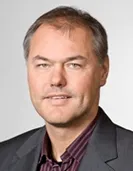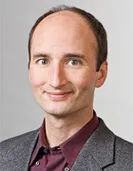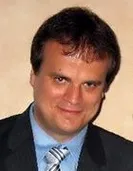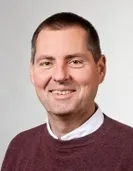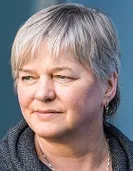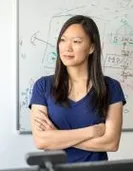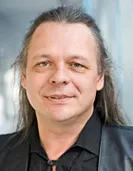Visual Computing
Visual Computing represents and pools the expertise at the Technical University Munich in Visual Computing. It is concerned with the development of efficient algorithms and systems for the improved sensor-based reconstruction, computer-aided synthesis, and interactive graphical representation of visual data. Major challenges we address are with respect to the ever growing size of the data to be handled, and the time constraints that are more and more often imposed in practical applications.
The cluster aims at bringing the developed technologies into application areas and bundling existing activities at the Technical University of Munich. It serves as an interface between national and international research institutes and corporations, with the the goal of collaborative research and development.
Gottfried Wilhelm Leibniz Prize (Prof. Daniel Cremers)
In 2016, Prof. Daniel Cremers has been awarded the most important German science prize: the Leibniz Prize of the German Research Foundation (DFG). He is being recognized for his trend-setting research on mathematical image processing and pattern recognition. This research aims to endow machines with the ability to analyze and interpret visual data.
ERC Proof of Concept Grant "Vis4Weather" (Prof. Rüdiger Westermann)
In 2016, Prof. Rüdiger Westermann received the European Research Grant ERC Proof of Concept (PoC) Grant for the project "Vis4Weather". Building on research results of his ERC Advanced Grant "SaferVis" (see below) and research from the DFG-funded transregional Collaborative Research Centre "waves, clouds, weather", the project will explore the practical applications of visualization of the fuzziness of weather data shall be explored. In the ERC-funded PoC project, Westermann and his coworkers aim to study the potential of an operational use of meteorological data visualization at weather centers and the potential of such visualization tools for training forcasters, decision makers and researchers in 3D ensembles.
ERC Advanced Grant "SaferVis" (Prof. Rüdiger Westermann)
ERC Advanced Grants are designed to allow outstanding research leaders to pursue ground-breaking, high-risk projects in Europe. According to ERC the program targets researchers who have already established themselves as top independent research leaders.
Prof. Rüdiger Westermann was honored with an ERC Advanced Grant for research in the area of uncertainty visualization. Visualization has significantly changed the way humans analyze lager amounts of multi-dimensional data. The research project "SaferVis: Uncertainty Visualization for Reliable Data Discovery" challenges the status quo in visual data analysis with innovative ideas for next-generation technology that provides uncertainty visualization as a core methodology. It aims at developing a visual language for the communication of the variability of features due to uncertainties in the data generation and visualization processes.
ERC Consolitator Grant "3D-Reloaded" (Prof. Daniel Cremers)
The ERC bestows the Consolidator Grants to outstanding scientists who have made a name for themselves through pioneering achievements between seven and twelve years after the completion of their doctorates.
Prof. Daniel Cremers carries out research in the fields of mathematical image processing and pattern recognition. He has been awarded an ERC Consolidator Grant for his “3D-Reloaded” project. The aim of the project is to create 3-D models of the real world from two-dimensional videos recorded using cameras, for example cell phone cameras. The resulting models could be used, for example, to calculate how much lignite was extracted from a mine over a particular period of time. They could also be used to explore the world’s most remote regions while sitting at a PC and could also enable film viewers to select the perspective from which they see an action. The analysis of the three-dimensional models is another of Prof. Cremers’ research interests. In medicine, this technology could enable the reconstruction of organs and the testing of the resulting models for anomalies. The models could also document and analyze the development of motion sequences performed by dancers and gymnasts.
ERC Consolitator Grant “SpaTe" (Prof. Nils Thuerey)
Prof. Thuerey, received funding in the form of a Consolidator Grant from the European Research Council (ERC). The goal of his "SpaTe" project is to teach physics to computers – using data and examples rather than the conventional equation-based method. Software that predicts how gases, liquids and solids change shape under certain conditions and over a certain period is used in an enormous number of industries and research projects. So far, these programs have required enormous processing power. Machine learning has the potential for flexible and realistic modelling of temporal processes. Very little research has taken place in this area, however. In his project, Prof. Thuerey wants to develop new algorithms to put machine learning to use in physical simulations. In the future this might make it possible, for example, to detect automatically from video data which physical materials are present and analyze their behavior.
Period: 01.09.2020 bis 31.08.2025
